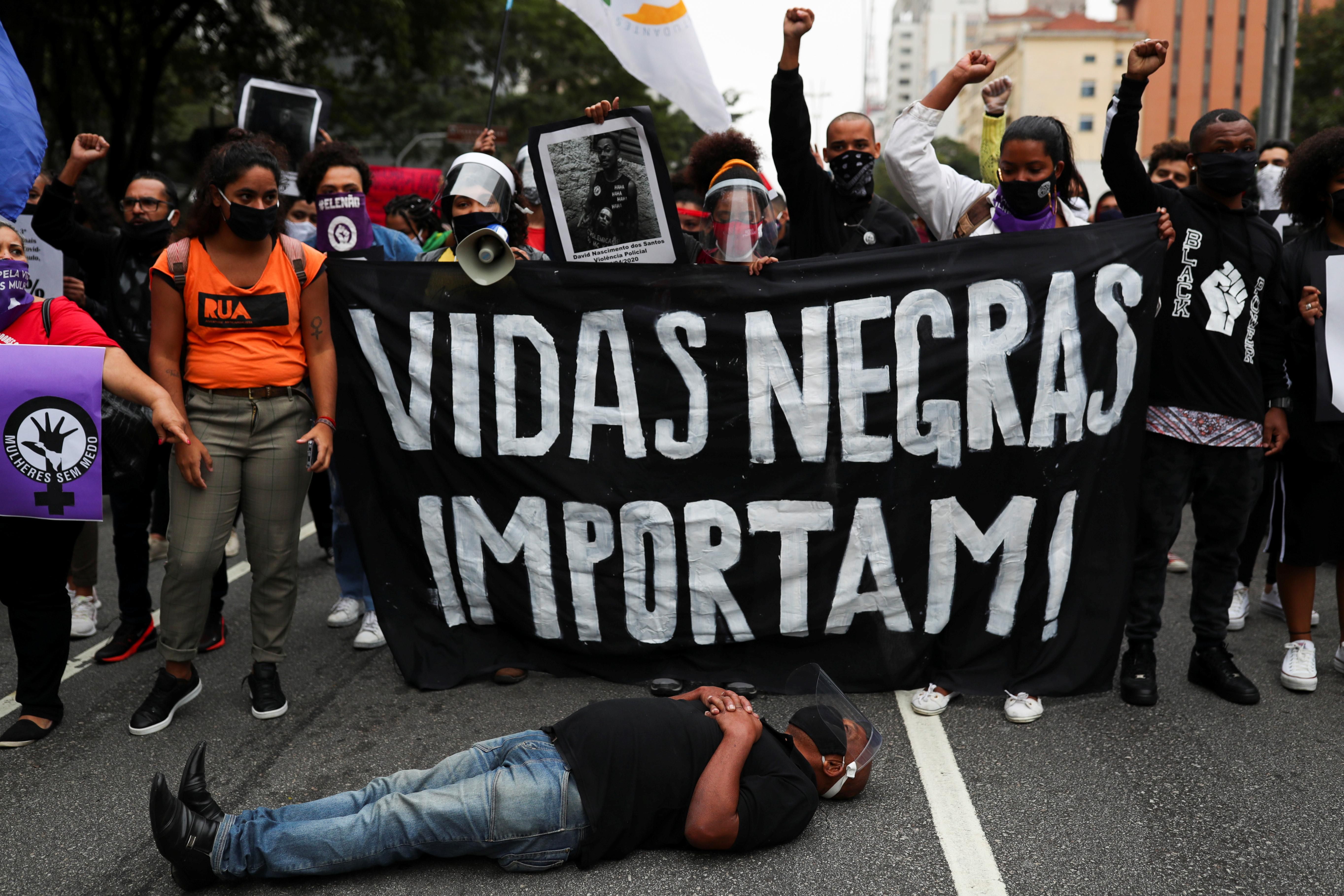A year ago, the police murder of George Floyd galvanized a new generation of protest and advocacy for racial justice and police reform in the United States. But it also energized activists in other countries, who for decades had been waging their own fights for social and racial justice.
Here we take a look at three places where the Floyd rallies struck a chord — and ask: what's happened in the year since?
Brazil: When the George Floyd protests erupted in the US, many in Brazil were still reeling from the police shooting of a 14-year old Black child, João Pedro Matos Pinto, in Rio de Janeiro. He was merely the latest of thousands in recent years. Of the 9,000 Brazilians killed by police in the decade before 2020, three-quarters were Black. Impunity for police in these cases is the norm. And as in the US, the problems of racial inequality are much broader. Though 56 percent of Brazilians now identify as Black or biracial, economic and political power remains primarily with whites. And the pandemic — which continues to rage in Brazil — has taken an extra harsh toll on Brazilians of African descent
In the past year, there have been several positive steps. Last fall, electoral authorities ruled that political parties should give more funding to Black candidates, who are generally underrepresented in Brazil. And a historically high number of Black or biracial lawmakers took office in local elections last November. ( Interestingly, many had miraculously changed their race from white to Black ahead of the vote.) Some of Brazil's large companies made controversial moves to boost the number of Black employees specifically.
And yet, amid rising crime and killings in Brazil's cities, rightwing President Jair Bolsonaro has accused racial justice activists of "importing tensions" to Brazil and has a track record of encouraging police violence against suspects. Last November, fresh protests erupted after security guards in southern Brazil beat a Black man to death. And just weeks ago, a brutal, and potentially legally-questionable, police raid of a gang-infested favela in Rio de Janeiro left 28 people of color dead. In the days afterwards, protesters again decried the fate of so many Black Brazilians who die, they chanted, "by bullets, by hunger, or by COVID."
France: The Floyd protests also prompted a fresh reckoning with racial justice and police violence in France, where the case of Adama Traoré, a Malian-French man who died in police custody in 2016, remains an open wound for justice activists. According to the BBC, young men of African or Arab background are 20 times more likely to be stopped by French police than whites.
But in the year since, progress has been halting. For one thing, identifying the problem itself has been hard because France — as part of its idea of a race-blind republican citizenship —keeps very few statistics organized by race.
For another, although crime rates have stayed relatively low in France, a crime spike in 2019 and a spate of attacks by Islamic extremists created a sense of concern about both crime and France's national identity that rightwing politicians like Marine Le Pen have seized upon, forcing beleaguered centrist president Emmanuel Macron to tack rightward on security. Police unions have successfully blocked efforts to ban the chokehold that killed Traoré, and a new security law restricts the right of citizens to film on-duty police officers. Supporters of the measure say it protects law-abiding police from being subjected to online harassment, but critics say it makes it harder to hold bad cops accountable.
Australia: Some of the largest racial justice protests energized by those in the US took place in Australia, where thousands took to the streets to highlight the plight of the country's indigenous populations.
Although Indigenous Australians comprise just 3 percent of Australia's 25 million people, they account for nearly a third of all prison inmates, and a fifth of all deaths in jail. Hundreds have died in custody since the 1990s. Nearly a century after an Australian government program to strip Indigenous children from their families created a "Stolen Generation," Aboriginal and Torres Strait Islander communities' health and education indicators lag, and bias against them remains widespread.
There has been some progress over the past year. Last July, the Australian government, working with Indigenous groups, expanded the scope of its "Closing the Gap" agreement, a policy framework that aims to redress generations of discrimination against Australia's Indigenous peoples. The new targets include a commitment to substantially reduce the number of Aboriginal people in prison by 2031.
But some critics say the targets aren't nearly ambitious enough. Others point out that many of the goals in an earlier agreement from 2008 remain unmet, and that Aboriginal and Torres Strait Islander Australians aren't sufficiently involved in the policy decisions that affect their communities.
